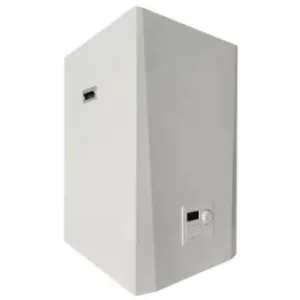- Afrikaans
- Albanian
- Amharic
- Arabic
- Armenian
- Azerbaijani
- Basque
- Belarusian
- Bengali
- Bosnian
- Bulgarian
- Catalan
- Cebuano
- China
- China (Taiwan)
- Corsican
- Croatian
- Czech
- Danish
- Dutch
- English
- Esperanto
- Estonian
- Finnish
- French
- Frisian
- Galician
- Georgian
- German
- Greek
- Gujarati
- Haitian Creole
- hausa
- hawaiian
- Hebrew
- Hindi
- Miao
- Hungarian
- Icelandic
- igbo
- Indonesian
- irish
- Italian
- Japanese
- Javanese
- Kannada
- kazakh
- Khmer
- Rwandese
- Korean
- Kurdish
- Kyrgyz
- Lao
- Latin
- Latvian
- Lithuanian
- Luxembourgish
- Macedonian
- Malgashi
- Malay
- Malayalam
- Maltese
- Maori
- Marathi
- Mongolian
- Myanmar
- Nepali
- Norwegian
- Norwegian
- Occitan
- Pashto
- Persian
- Polish
- Portuguese
- Punjabi
- Romanian
- Russian
- Samoan
- Scottish Gaelic
- Serbian
- Sesotho
- Shona
- Sindhi
- Sinhala
- Slovak
- Slovenian
- Somali
- Spanish
- Sundanese
- Swahili
- Swedish
- Tagalog
- Tajik
- Tamil
- Tatar
- Telugu
- Thai
- Turkish
- Turkmen
- Ukrainian
- Urdu
- Uighur
- Uzbek
- Vietnamese
- Welsh
- Bantu
- Yiddish
- Yoruba
- Zulu
Tet . 22, 2024 04:41 Back to list
Understanding Gas Furnaces and Boilers for Efficient Heating Solutions
The Importance of Gas Furnaces and Boilers in Today's Energy Landscape
In recent years, the quest for energy efficiency and sustainability has become a critical focus for both homeowners and businesses. Among the various heating solutions available, gas furnaces and boilers stand out as some of the most effective and reliable options. This article delves into the advantages of gas heating systems, their mechanisms, and the trends shaping their future in the energy landscape.
How Gas Furnaces and Boilers Work
Gas furnaces and boilers operate on a simple principle they burn natural gas to create heat. In a gas furnace, air is drawn into the unit, heated by burning gas, and then distributed throughout the building via ductwork. Boilers, on the other hand, use gas to heat water, which is then circulated through radiators or underfloor heating systems. Both systems are designed to provide consistent warmth, making them ideal for residential and commercial applications.
Benefits of Gas Heating Systems
1. Energy Efficiency Gas furnaces and boilers are known for their high efficiency ratings. Modern units can achieve efficiency levels of up to 98%, meaning that nearly all the fuel consumed is converted into useful heating. This high efficiency translates to lower energy bills and a reduced carbon footprint, making gas heating an environmentally friendly choice.
2. Cost-Effective Natural gas is often less expensive than electricity, making gas heating systems a cost-effective option for homeowners. Furthermore, advances in technology have led to the development of condensing boilers, which further enhance efficiency by recycling exhaust gases to extract additional heat.
3. Reliability Gas furnaces and boilers are generally more reliable than their electric counterparts, particularly during cold weather. Unlike electric systems that may falter during power outages, gas heating can continue to operate, providing peace of mind to homeowners.
4. Quick Heating One of the most appealing aspects of gas heating is its ability to warm spaces quickly. Gas furnaces can heat air in a matter of minutes, while boilers circulate hot water rapidly, providing immediate comfort, particularly in cold climates.
gas furnace and boiler

5. Environmentally Friendly Options The energy sector is increasingly focusing on reducing carbon emissions. Natural gas is considered a cleaner alternative to oil and coal, emitting fewer greenhouse gases when burned. Additionally, the development of biogas and renewable gas sources can further enhance the sustainability of gas heating solutions.
Trends Influencing the Gas Heating Sector
While gas furnaces and boilers are established technologies, several trends are shaping their evolution
1. Smart Technology Integration Modern gas heating systems are becoming more integrated with smart home technologies. Homeowners can now control their heating systems remotely via smartphone apps, allowing for personalized settings and energy-saving features. Smart thermostats can learn user behavior and optimize heating schedules, further enhancing efficiency.
2. Hybrid Systems The rise of hybrid heating systems, which combine gas with renewable energy sources like solar panels, is gaining traction. These systems can reduce dependency on fossil fuels and improve overall energy efficiency, making them an attractive option for environmentally conscious consumers.
3. Regulatory Changes Governments around the world are implementing stricter regulations aimed at reducing carbon emissions. In some regions, there is a push towards electrification and the use of heat pumps; however, this raises important questions about the future of gas heating. The industry's response involves investing in technologies that can lower the carbon footprint of gas systems through innovations like carbon capture.
4. Maintenance and Safety Advances Gas heating systems require regular maintenance to ensure efficiency and safety. Advances in diagnostic tools and regular monitoring technologies have improved the ability to detect leaks and inefficiencies, helping to maintain optimal performance.
Conclusion
Gas furnaces and boilers play a crucial role in the energy landscape, providing reliable and efficient heating solutions. As technology continues to advance and environmental concerns grow, these systems are evolving to meet new challenges. By understanding the benefits and trends associated with gas heating, homeowners and businesses can make informed decisions about their heating options. Whether embracing new technologies or maintaining existing systems, gas heating remains a prominent player in achieving energy efficiency and sustainability.
-
8mm Thin-Walled Cast Steel Manhole Cover Pallet Bottom Ring | Durable
NewsAug.04,2025
-
Premium Cast Iron Water Main Pipe: Durable, Corrosion-Resistant
NewsAug.03,2025
-
Durable Cast Iron Water Mains | AI-Optimized Systems
NewsAug.02,2025
-
High-Efficiency Propane Boiler for Baseboard Heat | Save Energy
NewsAug.01,2025
-
Premium Source Suppliers for Various Gray Iron Castings
NewsJul.31,2025
-
Durable Cast Iron Water Main Pipes | Long-Lasting
NewsJul.31,2025


